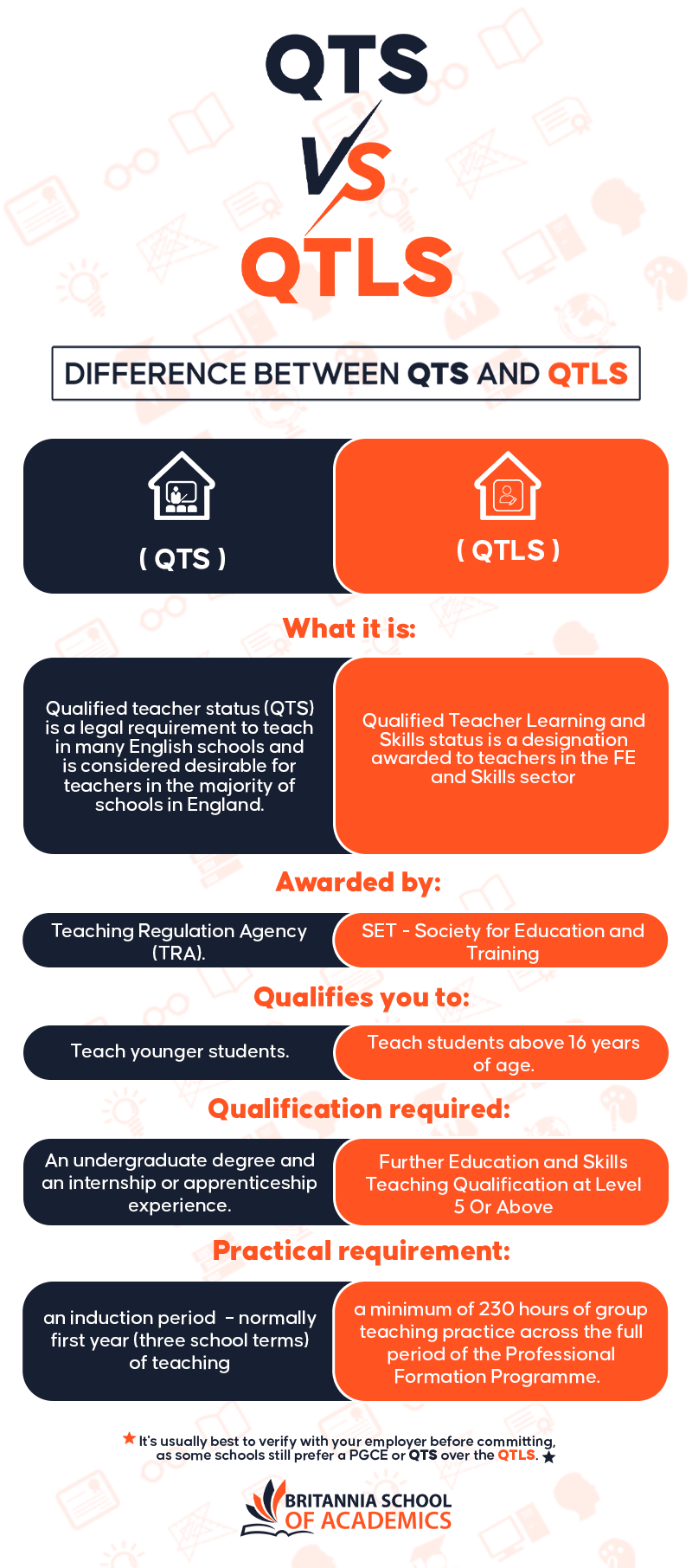QTS and QTLS are two different legal requirements to teach in the UK. Even though, these terms are used interchangeably for a better understanding, they are a lot different. Here you will find all the relevant details about the QTS and QTLS that will help you decide what is better suited to your needs.
What is QTS?
Qualified Teachers Status (QTS) is a recognised legal requirement to teach in the majority of the schools across England. Schools where QTS is a requirement by law are referred to as maintained schools. An executive agency sponsored by the Department of education, known as the Teaching Regulation Agency (TRA) is responsible for awarding QTS.
There are various ways of gaining the QTS but the most common way is through the PGCE or Bachelors in Education offered by universities. To achieve QTS you must have an undergraduate degree in any subject of your choice before you apply for the PGCE programme. However, Universities offer PGCE at a much greater cost and it does not guarantee the QTS because a lot of candidates are unable to meet the time and cost requirements of the PGCE programme and hence leave this journey halfway. After completion of the academic part, you are still required to pass an induction period normally first year (three school terms) of teaching to achieve fully qualified teaching status. However, Teachers who have gained QTS but have not yet completed the Induction period are known as NQTs (Newly Qualified Teachers). NQTs who fail the induction still retain their QTS, but cannot teach in state-run schools.

What is QTLS?
QTLS stands for Qualified Teacher Learning and Skills Status. It is recognised as a professional status in the education sector. QTLS is a teaching status awarded to teachers who complete their teaching qualifications to be approved to teach or train in the FE and Skills sector. Teachers and trainers with QTLS have been recognised as having the same status as teachers with QTS in schools since April 2012. A reform was passed by the government stating that QTLS holders can teach in institutions above and below the sixth form. This means that a teacher with a QTLS Status can teach all subject areas and all ages on equal pay and working conditions, allowing for career advancement and wider employment opportunities.
This status is awarded by Society for Education and Training (SET) which is part of the Education and Training Foundation (ETF). SET is the professional body for teachers, trainers and leaders in Further Education (FE) and training sector in England.
If you are aiming to achieve QTLS, a key step is completing the Level 5 Diploma in Teaching (Further Education and Skills). This is the approved qualification that meets the eligibility requirements set by the Society for Education and Training (SET) for QTLS status. It prepares you to teach learners aged 14 and over in further education, adult learning, and training environments across the UK.
The Level 5 Teaching Qualification we deliver is accredited by UK OFQUAL and is 100% online. You are only required to hold a Level 2 qualification in Mathematics and Literacy (GCSE in Maths or English) to achieve this qualification.
However, if you do not hold Level 2 Literacy and Numeracy skills, you can opt for our QTLS Pathway (with English and Maths). This pathway is designed especially for aspirants who ultimately want to attain Qualified Teacher and Learning Skills status.
Read further: Common Routes to Achieving QTLS & Qualified Teacher Status




